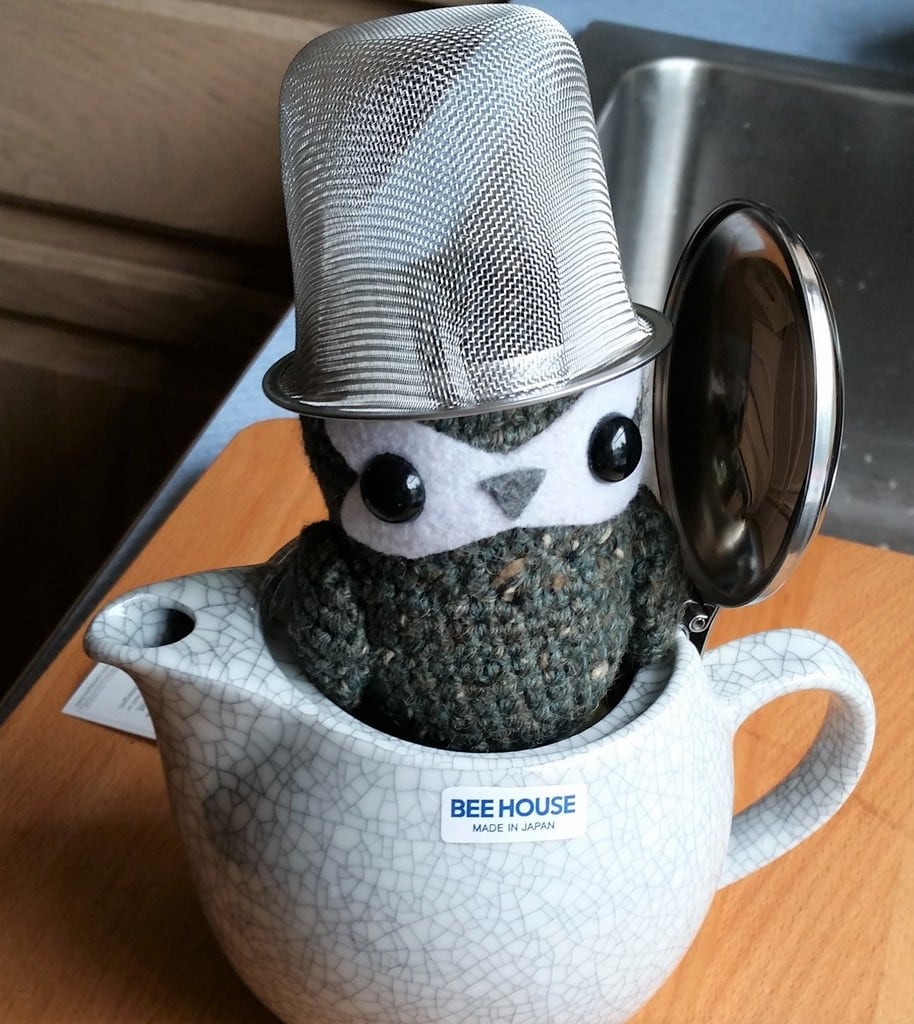Back at the 2017 Northwest Tea Festival, I saw the Tea Bar doing a 5 minute taste comparison of electric vs charcoal roast tea. I sadly missed the tasting, but Old Ways Tea, who supplied teas for that tasting, sent some my way to do my own comparison. Getting my own to try is much better as I can write in depth.
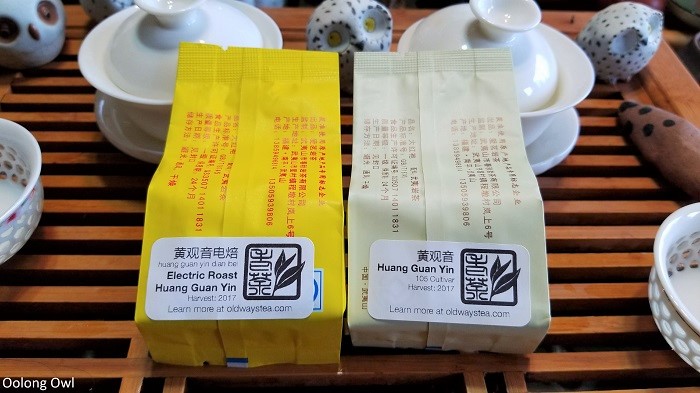
So what I have is Old Ways Tea’s Huang Guan Yin Wuyi oolong. I have an electric roast and a charcoal roast, same year, harvest and batch – the only difference is the roast. Some might think the difference is easy as charcoal roast should have a distinct smoke to it, however, a well-done roast should not be smoky.
Dry Leaf and Steeping Method
The electric roast smells stronger whereas the charcoal roast is softer in smell. Both with a sweet roast nutty scent. The leaves near look the same.
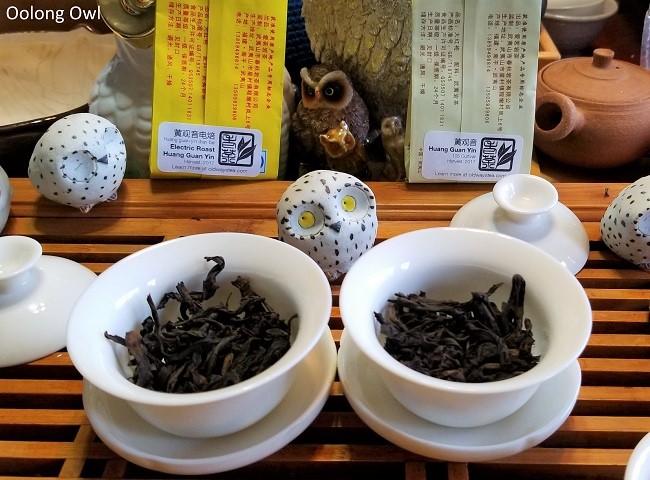
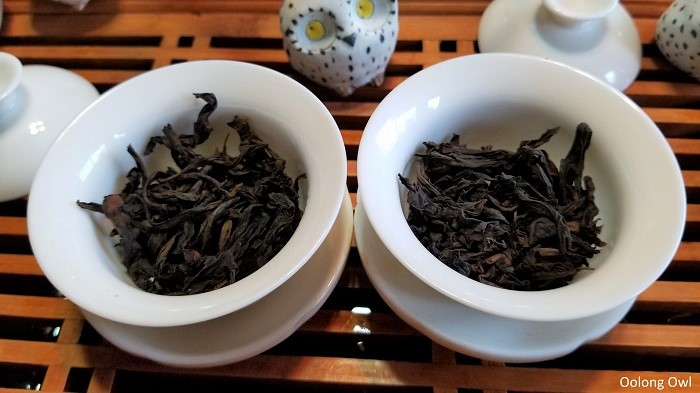
I prepared both teas the same, using a high leaf ratio of 1 gram to 12ml of vessel size. I steeped in boiling water with flash infusions. Early on steeped up, both teas look the same. The hot leaf of the electric is fruity tropical scented with roasty notes. The charcoal roast smells dark and richly nutty.
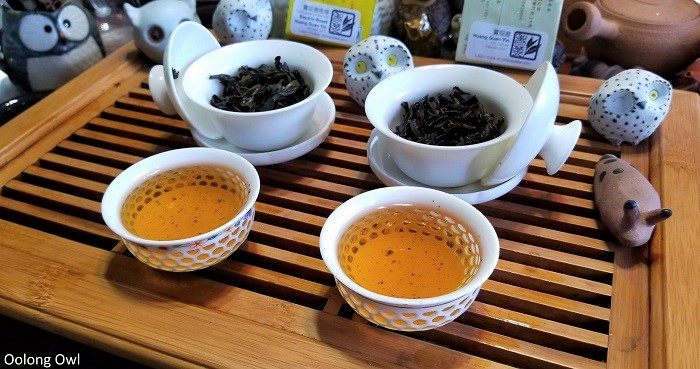
Tasting of Old Ways Tea Huang Guan Yin Roast Comparison
Electric Roast Huang Guan Yin
The electric roast is smooth and peachy, with a flavor that shifts to abrasive roast nut shells. The finish is baby powder with an aftertaste that is shelly and peachy. This tea really is what I associate most with my experiences with rock teas – that exchange of slippery peach, dryness, and nutty shells.
The final infusion sharp, astringent jagged feel in the back of my tongue. The notes are fresh powdery wood with a bit of a peach aftertaste.
As the tea steeps on, the electric roast isn’t as dark.
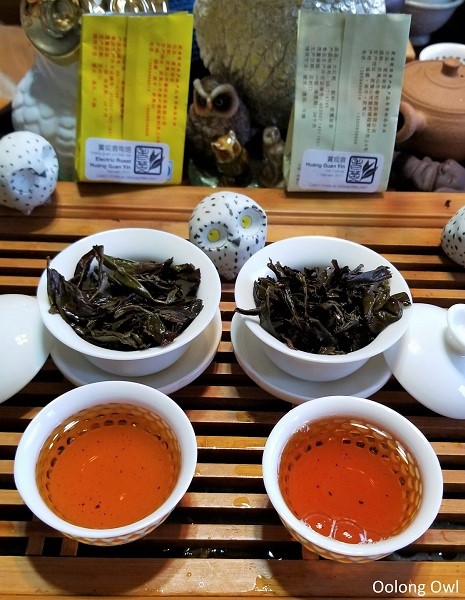
Charcoal Roast Huang Guan Yin
The charcoal roast is more smooth in comparison. The flavor is all in one with a darker rich taste without a sharp roasty aspect to it. This tea is woodsy and mineral, leaning more savory and no fruity notes. The aftertaste is slightly peachy. The texture is full and has no dryness. It is trying to get me to salivate.
The later infusions are still very smooth. It isn’t bitter or astringent in comparison, but on its own, it is a touch bitter. It is strong in mineral notes and wood. No fruity elements unless you sit here for a couple minutes and let the aftertaste sink into a peachy floral.
The charcoal roasted leaf looks not as green, but they are still pretty close in appearance.
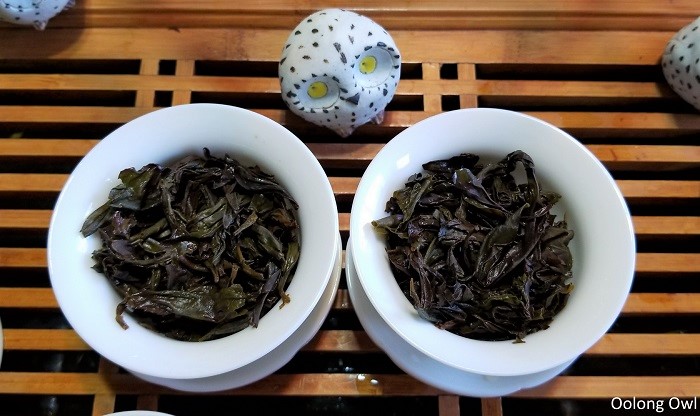
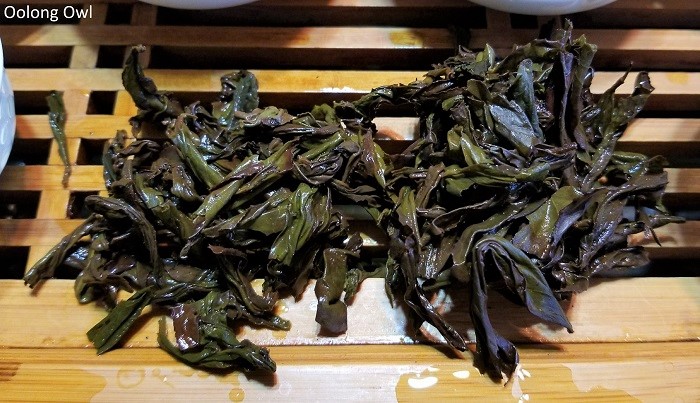
Comments
Roast certainly effects the flavor and body of a rock tea. I found the charcoal roast more smooth, but with the tradeoff of less fruity. Both had a delicious lingering fruity aftertaste. The electric had much more astringency early on.
I was impressed how well done the charcoal roast was as it isn’t smokey. Both teas are good, as the electric roast has a nice fruity note to it. Which you on may like does lean on personal preference and cost here – the electric one is what I am more used to tasting for rock teas, but I like the charcoal one more for smooth and darker flavor, without being smokey or sharp. The electric roast is also much cheaper, especially since it can be done on a larger scale and less mastery involved.
Either way, both teas can be purchased at Old Ways Tea – Electric Roast Huang Guan Yin & Charcoal Roast Huang Guan Yin. If you love roasted teas, this is also a great way to experience tasting the difference between the roasting methods.
(tea provided for review)






